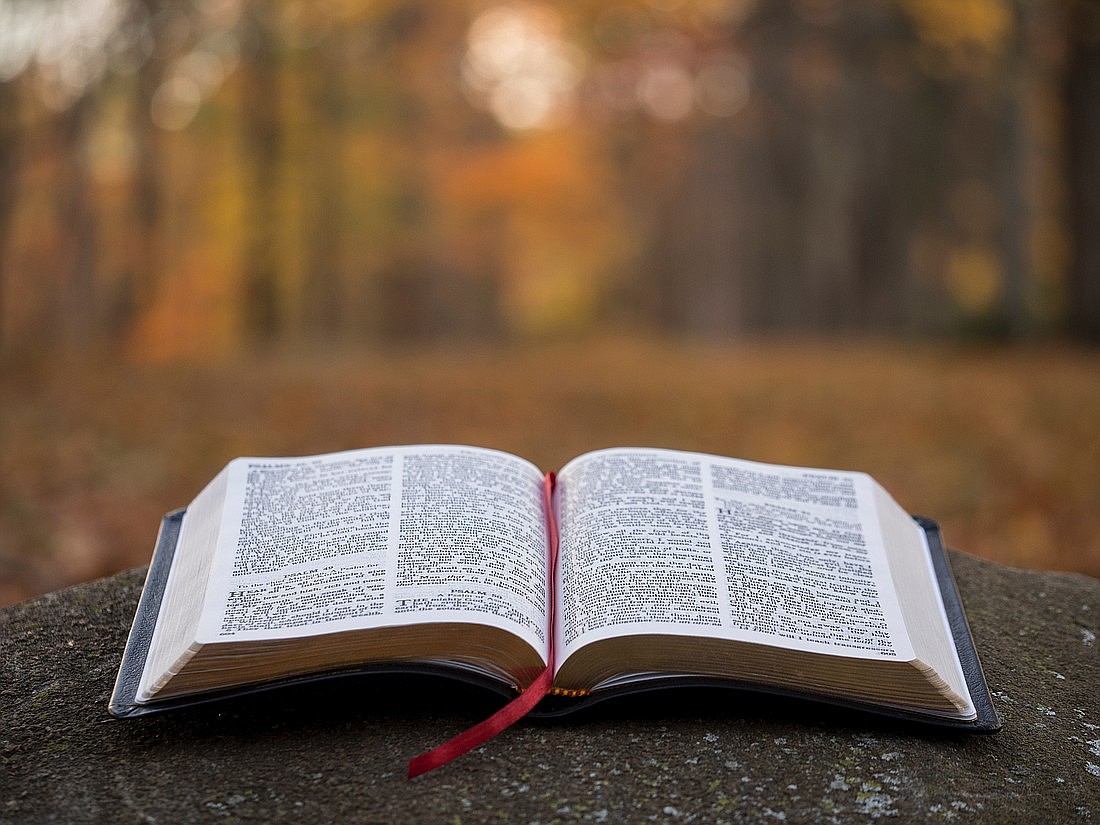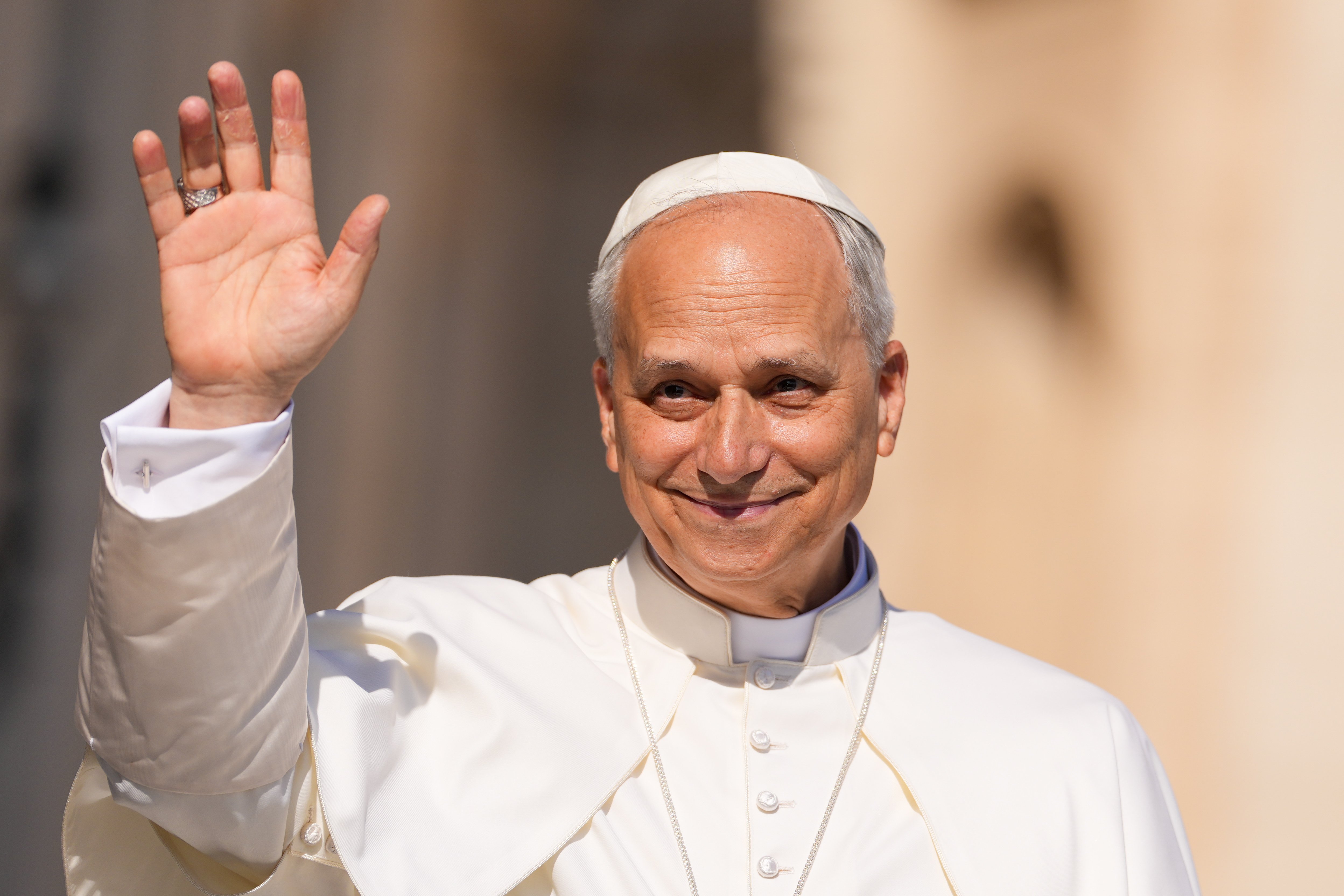January 9, 2024 at 10:53 a.m.
St. John the Baptist recognizes Jesus
This weekend we begin “Ordinary Time” once again (marked by the green vestments that the priest and deacon wear for Mass). In the first few weeks of this season in our church’s calendar, we usually hear passages from the Gospel of St. John about the beginning of Jesus’ three-year public ministry, and so it is with our Gospel reading this weekend.
“But whoever is united with the Lord is one with him in spirit.”
— 1 Corinthians 6:17
Our Gospel begins in a very ordinary and human way. St. John the Baptist is standing around with two of his disciples and watches Jesus walking by. Then he says something very significant, as the Holy Spirit moves his heart. Notice that John does not say something like, “There is the Messiah” or “There is Jesus of Nazareth.” Instead, he uses a phrase that is loaded with a special meaning: “Behold the Lamb of God.” Of course, these words are ones that are echoed at every Mass, as we prepare to receive the Lord, truly present body, blood, soul and divinity. As St. John Paul II has commented, “These are wonderful words, mysterious words, powerful words.” Not only that, but the image of Jesus as the Lamb of God is one of the most ancient and popular icons we have of our Lord.
When these words were said by St. John the Baptist 2,000 years ago, his hearers (those two disciples standing with him) would have caught their deeper meaning instantly. In the Jewish faith, each household would sacrifice a lamb once a year, at the Passover, as a powerful remembrance of how the Jewish people were led out from slavery in Egypt to freedom in the Promised Land. In the Temple in Jerusalem, a lamb was sacrificed also to recall the special relationship, or covenant, that God had made with His chosen people. Finally, the sacrificing of these lambs also carries a strong sense of a promise: that God would visit his people to redeem them from their sins and to restore them to true life.
We can now understand the easily missed detail, that once the two disciples of St. John the Baptist hear these words, they leave him and follow Jesus instead! They grasp that Jesus is the one who will lead them out of slavery to freedom; that Jesus is the new covenant between God and his people and that Jesus will take away the sins of the world. As with St. John the Baptist, the Spirit has stirred their hearts to recognize who Jesus is.
The two disciples, one of whom we then discover is St. Andrew, the brother of St. Peter, follow Jesus. Notice again the particular words used in the Gospel, as we hear the dialogue unfolding between Jesus and the two disciples. First of all, Jesus does not ask “Who are you looking for?” but rather, “What are you looking for?” The “what” must be those fundamental matters for the human heart, such as a desire for an authentic life, wanting to make a difference, looking for fulfillment and purpose, a search for truth and so many other things. In Jesus that thirst for the what, becomes the who: Jesus Christ.
This is perhaps why, instead of answering the question Jesus addresses to them, they ask, “Where are you staying?” This may seem an odd answer, but not really. The disciples want to stay with Jesus because they somehow know that it is Jesus who will answer that “what” question. They simply must be with him and learn from him. Jesus therefore invites them to “come and see.” They stay with the Lord. Incidentally, the word used for stay or staying is significant and notice that it is repeated three times. The word literally means that they make their home with him. They abide with the Lord; they become, in other words, disciples of Jesus.
St. Andrew is now a disciple of Jesus, that is certainly true. However, he also does something very important: he brings his brother Peter to Jesus. Andrew is not only a disciple but is also a disciple-maker. Andrew had called Jesus “rabbi” at that initial encounter, but as he goes to find his brother, Peter, he says instead, “We have found the Messiah.” We should bring these two details together: Andrew knows Jesus is the Messiah. Because of this, Andrew cannot keep that understanding and faith to himself, he has to bring others to the Lord.
This wonderful Gospel, of course, is not just about an encounter that occurred a millennia ago. It is very much about us. We are certainly called to be disciples, recognizing who Jesus is. We are also called to bring others to encounter Jesus, the Lamb of God, who takes away the sins of the world and, who grants us peace. In the year ahead, may we do just that!
MORE NEWS STORIES
- Children bear ‘heaviest toll’ in growing global conflicts, says Vatican diplomat at UN
- Pope to Ukrainian Greek Catholics: ‘God will have the last word,’ ‘life will conquer death’
- ‘We are in this together’: Recent Supreme Court rulings support parents in their vocation
- Idaho Catholics unite in prayer for firefighters killed in sniper ambush
- Longtime head of Polish Catholic news agency resigns, as bishops seek tighter control
- ‘Revival Worship’ brings the fire of the National Eucharistic Congress into playlists
- US archbishops reflect on importance of fostering unity
- Slain Minnesota lawmaker, husband remembered for lives lived ‘with purpose, meaning’
- ANALYSIS: ‘Big Beautiful Bill’ trillion-dollar increases to US debt to hit poor hardest
- Archbishops must promote unity, seek new ways to share Gospel, pope says










Comments:
You must login to comment.